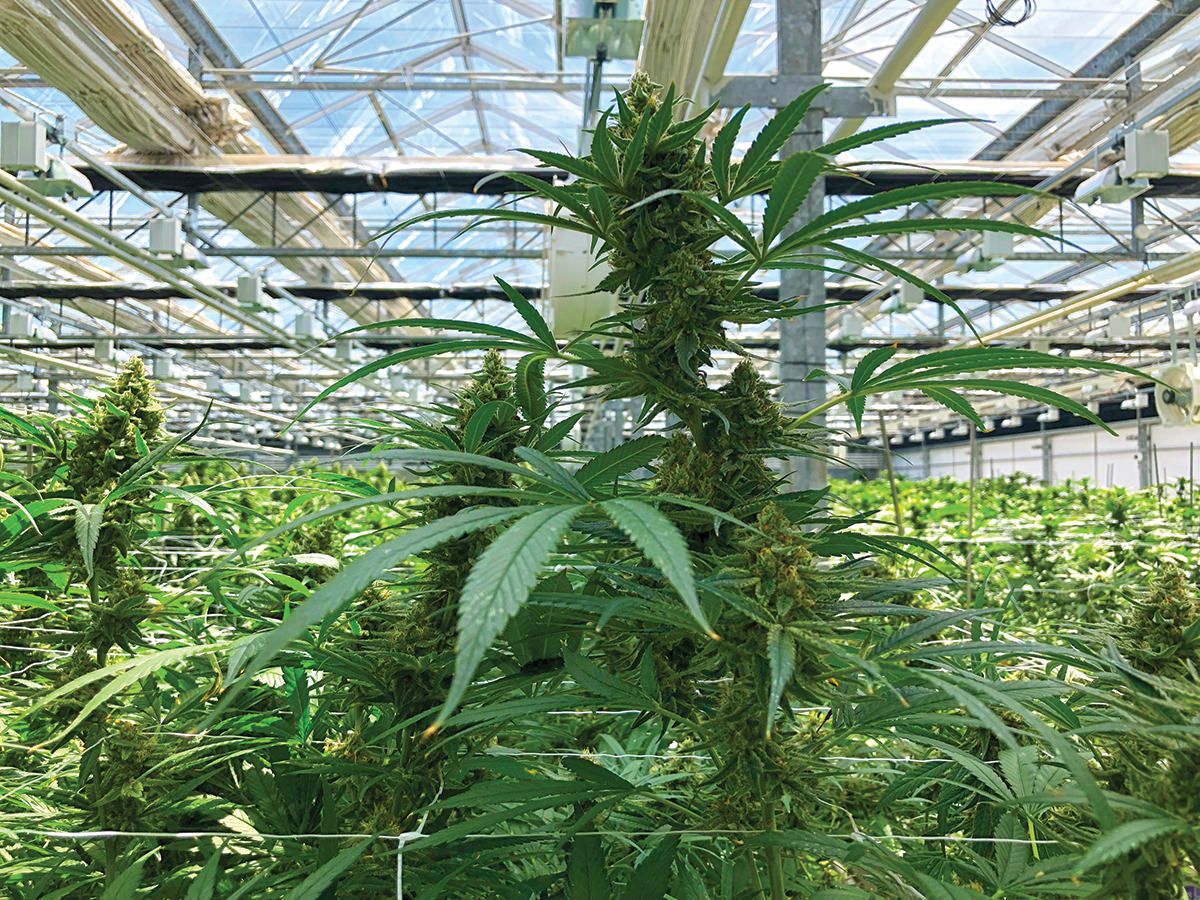(This story has been updated with statements from the Danish Medicines Agency and Australia’s Department of Health.)
Beleaguered cannabis grower CannTrust shipped some unlicensed medical marijuana overseas, the Ontario company told Marijuana Business Daily, adding an international dimension to the Canadian company’s regulatory woes.
In a statement to MJBizDaily, the Danish Medicines Agency said three batches are affected, but none have been sold on the Danish market.
The overseas shipments of unlicensed product raise questions about CannTrust’s own quality controls and Health Canada’s overall capability to monitor medical cannabis exports, according to experts.
On Monday, Health Canada sanctioned CannTrust for conducting unlicensed cultivation for six months at its facility in Pelham, Ontario.
As a result, the company is holding back from the market 12,500 kilograms (27,500 pounds) of marijuana.
The company’s greenhouse facility in Pelham, Ontario, was rated noncompliant by Health Canada for operating five unlicensed rooms between last October and March 2019.
Depending on the outcome of Health Canada’s review and product testing, CannDelta CEO Sherry Boodram said Canadian cannabis companies operating oversees may receive some backlash.
“However, Canada does have very high standards for cannabis production, and foreign countries and companies should not be overly concerned,” she added.
“It’s definitely a learning lesson for other cannabis companies.”
International shipments
Health Canada would not verify whether any of the unsanctioned medical marijuana had been shipped overseas.
But in a statement emailed to MJBizDaily, CannTrust confirmed some shipments had been made:
“CannTrust has international supply agreements with partners in Australia and Denmark. A portion of the cannabis cultivated in the five rooms pending licensing would have been shipped to these markets after passing quality testing at Health Canada certified labs.”
CannTrust’s partner in Denmark, Stenocare, confirmed in a news release that a small amount of the cannabis had been shipped to the country. It has been set aside and is not expected to have any negative impact on patients, the company said.
Stenocare said it has been in contact with the Danish Medicines Agency, and the noncompliant batches have been put in quarantine for potential destruction, pending the outcome of Health Canada’s investigation.
Deepak Anand, CEO of Toronto cannabis firm Materia Ventures, said the news will be concerning for international medical cannabis regulators and raises some doubts about the quality controls of both Health Canada and CannTrust.
“I imagine (the regulators) will be forced to at a minimum write to Health Canada to inquire as to receiving some assurances that the products are safe for consumption, and equally as important for them will be to ensure that none of them as regulators and governments are off side on their international obligations – as far as international conventions go,” he said.
“(Health Canada) might have inadvertently issued an export permit for unlicensed product, which could make both governments – the one issuing the import permit and the other the export permits – in violation of the conventions – albeit inadvertently.”
‘Noncompliant’
In an email to MJBizDaily, Health Canada said CannTrust has 10 business days – until July 18 – to respond to the noncompliant inspection report.
The regulator will determine the appropriate compliance and enforcement action after reviewing any additional information the company provides.
Health Canada conducted an unannounced inspection at CannTrust’s facility in Pelham on June 17, which resulted in “critical observations” and an overall noncompliant rating for the inspection.
Critical observations are made for a deficiency that will increase diversion and/or will cause health risks.
Critical observations are rare. The regulator noted only two such instances in the recently released compliance report out of 257 inspections for fiscal 2017-2018.
Health Canada said the critical observations were for conducting unauthorized activities – namely, producing cannabis in unlicensed rooms before obtaining regulator approval – providing false and misleading information to inspectors during the inspection as well as inadequate recordkeeping.
The inspectors returned to the facility July 3-4 to hand-deliver the inspection report and seized 4,327 kilograms of implicated product and obtained samples for further testing.
CannTrust had previously said that Health Canada put “a hold” on 5,200 kilograms of dried cannabis inventory and the company voluntarily held back another 7,500 kilograms of dried cannabis equivalent.
‘Root cause’
In emailed responses to queries from MJBizDaily, CannTrust stressed that it will submit a report to Health Canada with “a root cause analysis” and steps the company is taking to address the findings.
“We have bolstered our quality and compliance department and improved our processes along the way,” CannTrust wrote to MJBizDaily.
“We want to reassure our patients and consumers that all CannTrust products are safe and have passed quality testing at Health Canada certified labs as well as CannTrust’s own quality control processes and safety reviews.’
The company noted that it does not know exactly how much product from the unlicensed rooms was sold into the regulated adult-use market or to medical patients.
“We don’t have the exact numbers yet while we complete our full investigation,” the company wrote, adding that all product sold from the unsanctioned rooms had passed quality-control testing at Health Canada-certified labs as well as the company’s quality-control processes and safety reviews.
“We are in contact with all of our provincial retail partners to ensure that they have the information they need and understand any potential impact on supply for consumers.”
A spokesperson for Australia’s Department of Health said Canada is responsible for authorizing all shipments of medical cannabis products from Canada to Australia, as required under the Single Convention on Narcotic Drugs 1961.
“At this time, there has been no notification by the government of Canada to Australia of any issues with shipments of medicinal cannabis products from Canada,” the spokesperson said, adding that the Office of Drug Control will continue to monitor the situation.
CannTrust shares trade as CTST on the New York Stock Exchange and as TRST on the Toronto Stock Exchange.





